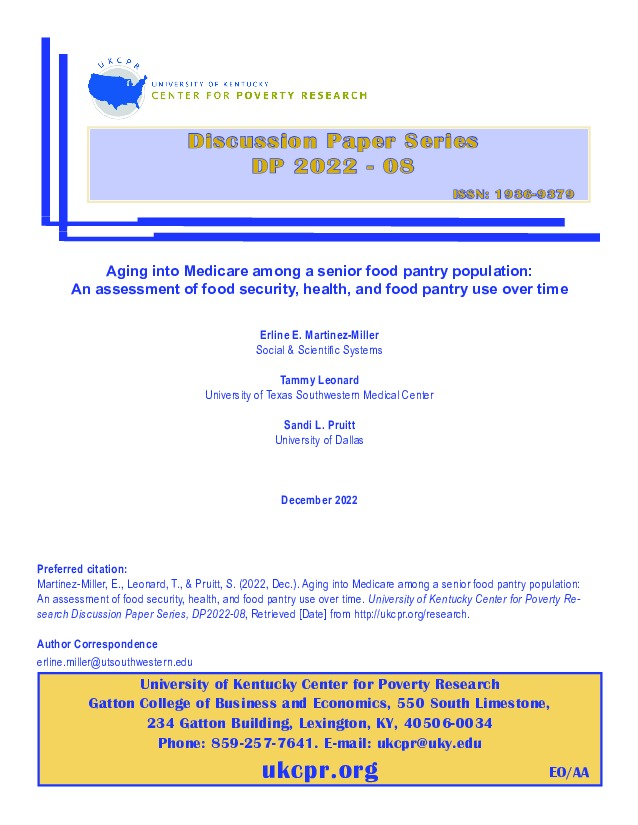We examined the association of Medicare eligibility with food security and food pantry visiting patterns among senior (aged ≥60 years) food pantry clients in Dallas, Texas. We used data from the pantry linked to electronic health records (EHR) from a safety-net healthcare system. Log-binomial regression was employed to calculate prevalence ratios of food insecurity by Medicare eligibility for all clients and separately for clients with various chronic conditions. We examined the impact of Medicare eligibility on food pantry visiting patterns among a non-disabled sample of clients using regression discontinuity. A member of each eligible household can visit once a month. Data from 604 households with 2,636 visits were analyzed for food security assessments. The majority were female (63%), average age was 68.5, many had less than a high school education (39%), and the majority were Black (60%) or Latino/a (29%). Of those with linked EHR data, 75% had at least one chronic condition. Medicare eligibility was associated with improved food security; this association was consistent among clients diagnosed with any chronic condition, but not among clients without any chronic condition. Additionally, we analyzed 119 households with 457 visits for the regression discontinuity analyses and observed that frequency of food pantry visits increased after becoming Medicare eligible. Overall, our findings highlight how Medicare eligibility may improve food security among seniors, potentially attributable to increased food pantry use after aging into Medicare. Future studies should examine underlying pathways of food pantry visiting patterns and their contributions to senior food security.
Research
SeniorsPDF Thumbnail
